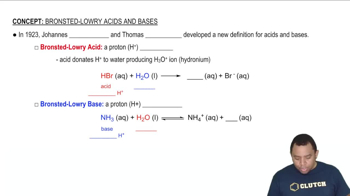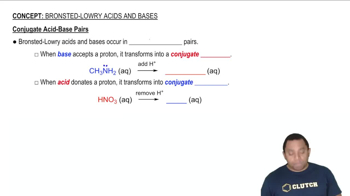Textbook Question
Aqueous solutions of hydrogen sulfide contain H2S, HS-, S2-, H3O+ , OH-, and H2O in varying concentrations. Which of these species can act only as an acid? Which can act only as a base? Which can act both as an acid and as a base?

 Verified step by step guidance
Verified step by step guidance


